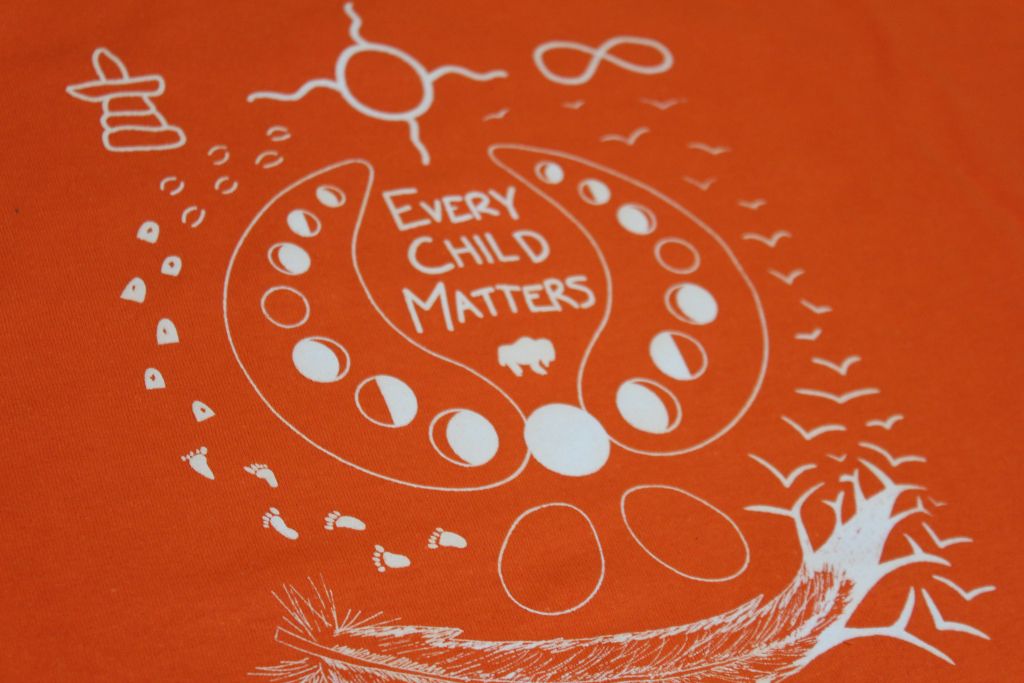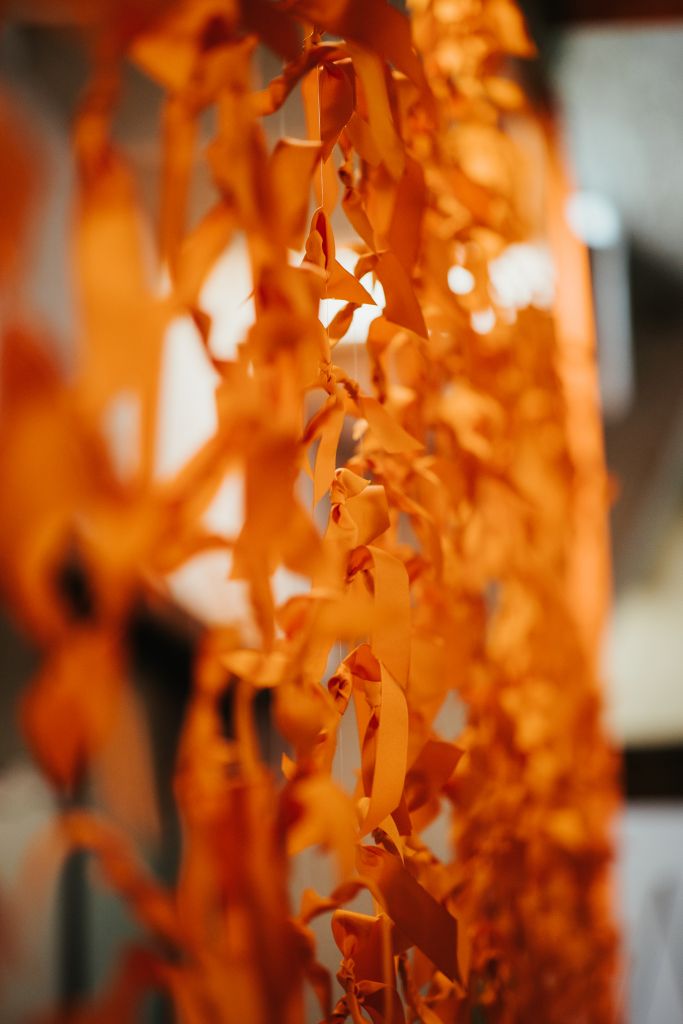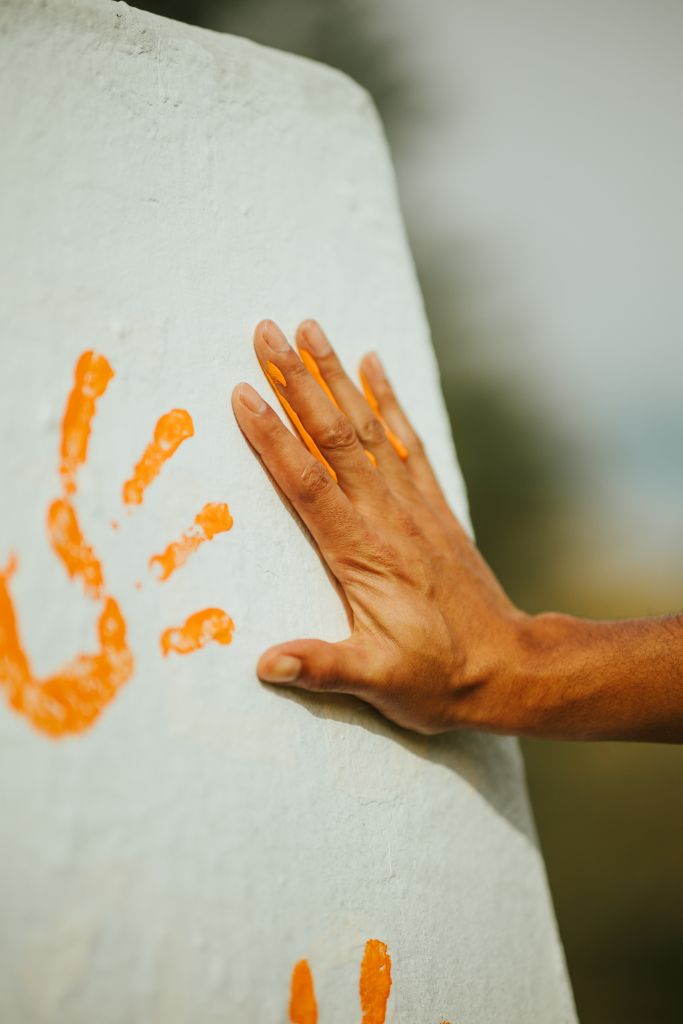Colonization is something that happens around us every day. Every day we are faced with acts of colonization.
As we recognize the National Day for Truth and Reconciliation on September 30, it is important to learn and understand how we can take meaningful steps to achieve the goals of the day and the overall mission of truth and reconciliation in Canada.
While the day itself is meant to honour the survivors of residential schools and to remember the children that never returned home, it is an important part of the larger reconciliation process in Canada. However, engaging in truth and reconciliation efforts should not be limited just to September 30.
Dr. Apooyak'ii, Tiffany Prete, is a faculty member in the department of sociology at ULethbridge. A member of the Blood Tribe, Tiffany’s research focuses on Indigenous education, weaving Blackfoot Ways of Knowing with western knowledge to examine intergenerational trauma and the effects that colonization has created on the Blackfoot community.
For Truth and Reconciliation week at ULethbridge, Tiffany shares her perspectives on truth and reconciliation in higher education institutions.



What could truth and reconciliation look like in higher learning institutions?
I think that there's so many different ways that higher institutions could approach what truth reconciliation could look like. I like to think of truth and reconciliation as kind of having four pillars. So, we need to think about colonization, decolonization, indigenization and also renewal.
We start off with colonization in acknowledging what colonization has done, and the perverse effects that it has had on those who have been colonized. I've been colonized, and it's something that affects me every day of my life. There seems to be this tendency for society to think that colonization has benefited everyone, and this isn't true. In order to reconcile, we first need to understand what needs to be reconciled and why. A first step would be to gain foundational knowledge of how colonization has had this endemic effect upon Indigenous Peoples, where the post-secondary institution is situated upon part of those people's traditional territory.
Second to that would be decolonization. The prefix “de” means to remove or reverse. We could say that decolonization is to remove the colonial hegemony. To reverse the colonial ideology that has been imposed in colonial education, to decolonize, would be to take those frameworks that have been imposed upon the colonized state, or within the higher education institution, and restructuring of those frameworks so that they're in a better position to indigenize.
Then indigenization would be the third pillar. The prefix for “ize” means to make or to become. Building upon decolonization, we can restructure these colonized frameworks and make space for indigenization. It's where we intentionally make space for other valuable knowledge systems and consider the restructuring of these frameworks with those who have been colonized, so in partnership with Indigenous Peoples.
Last is renewal. I'm taking the idea of renewal from Indigenous Ways of Knowing, Being and Doing, and that goes along with ceremony. A lot of the times ceremony has a renewal process. In post-secondary institutions, sometimes policies or frameworks can be created, but there really isn't any follow up to that. Building in renewal makes sure that there is regular reviewing of those mandates, frameworks and policies to see what's working, what's not working, as well as being able to do that, in partnership with Indigenous Peoples and the communities that the post-secondary institution whose traditional lands are situated upon.
How can members of higher learning institutions meaningfully and respectfully contribute to reconciliation?
I think that we can look at this question at an institutional level as well as a personal level. It all begins by having a serious study and consideration for the Truth and Reconciliation Commission of Canada's calls to action. At the institutional level, it would be really great to see every level of the institution trying to integrate the calls to action. That would include, for example, university policies with different faculties and departments, making goals on what it is that they would like to do to be able to integrate those calls to action. It's taking a look at those calls to action and deciding which lens that they are going to integrate, and how they're going to integrate that meaningfully into the university environment.
But we also need to consider what barriers exist, and that would prevent us from meaningfully and authentically integrating these calls to action.
Part of that work is being able to confront our own biases and examining the policies that are already in place, the language that's being used within those policies, and asking, who does this privilege? Who does this serve? Does this allow for the full engagement of our faculty, staff and students to be able to access the university? Or does it only privilege a select number of individuals?
Higher institutions need to be able to examine what colonial practices that they might have in place at their universities and how can these practices be dismantled, so that all members of the institution have equitable access to the institution and not just a select few. It's hard work, that at times might be uncomfortable, but I think we need to get use to that uncomfortable feeling, in order to be able to make progress.
It would be really wonderful to be able to see every post-secondary institution in Canada to work on a framework for institutional governance that outlines academic action and accountability, which is the renewable piece, and that it be specific to the traditional territory that the post-secondary institution is situated upon. That is partnering with different Indigenous communities, including Indigenous leaders, community members, Elders, knowledge holders as well as even the Indigenous students who attend that post-secondary institution, and being able to have open dialogues about the needs of the Indigenous population. Accountability is really important, so in setting those goals and creating the policy frameworks, there still needs to be renewal of being able to take a look at what progress has been made, what's working, what's not and what could be done differently.
The National Day for Truth and Reconciliation is a perfect day to take that time to reflect and think about the goals that you've made and what you would like to do differently in the upcoming year. I think everyone should approach it as a day of personal learning, where you put in the time and the effort to plan to attend different events that are being held and then picking at least one goal, something that you want to try to do differently in the upcoming year. Then on the next National Day for Truth and Reconciliation, reflect on how you did on that goal, what it is that you could do differently, what went well, and what you would like to try and do differently in the upcoming year.
In recognition of the National Day for Truth and Reconciliation, what is something that you believe everyone should know about the day?
I think it's really important to understand the true history of Canada, and why there's even a need for a National Day for Truth and Reconciliation. This really centres around Canada's colonial history and it's not something that has really been taught in Canada in our education system, unfortunately. In my own research that I've conducted and the work that I do, I have come to understand that a lot of Canadians believe that colonization is something that happened years and years ago at one point in time in the past, and this is a false belief.
Colonization is something that happens around us every day. Every day we are faced with acts of colonization.
We need to be able to recognize the long-lasting and negative effects that colonization has had and continues to have on not just Indigenous Peoples here in Canada, but how that also affects the rest of Canada. Without this knowledge, it makes it difficult to reach the stage where we can act or engage in acts of reconciliation.
A sincere thank you to Dr. Apooyak'ii for sharing her words on truth and reconciliation. Learn more about the National Day for Truth and Reconciliation.
Sociology professor, Dr. Tiffany Prete (Apooyak'ii), presents "The Kainai Stolen Children Era" during next month's PUBlic Professor Series talk. Thursday, October 27. 7-9 p.m. Sandman Signature Lethbridge Lodge.
Did you know Indigenous children in Canada endured more than just Indian residential schools during the stolen children era? Indeed they did. In fact, for over a century, the Canadian Government used several school models to try to assimilate Indigenous children. In her talk, Dr. Prete will discuss the overarching policies that guided education for Indigenous children while revealing the multiple education models used. Her talk will focus on her Kainai (Blood) People.